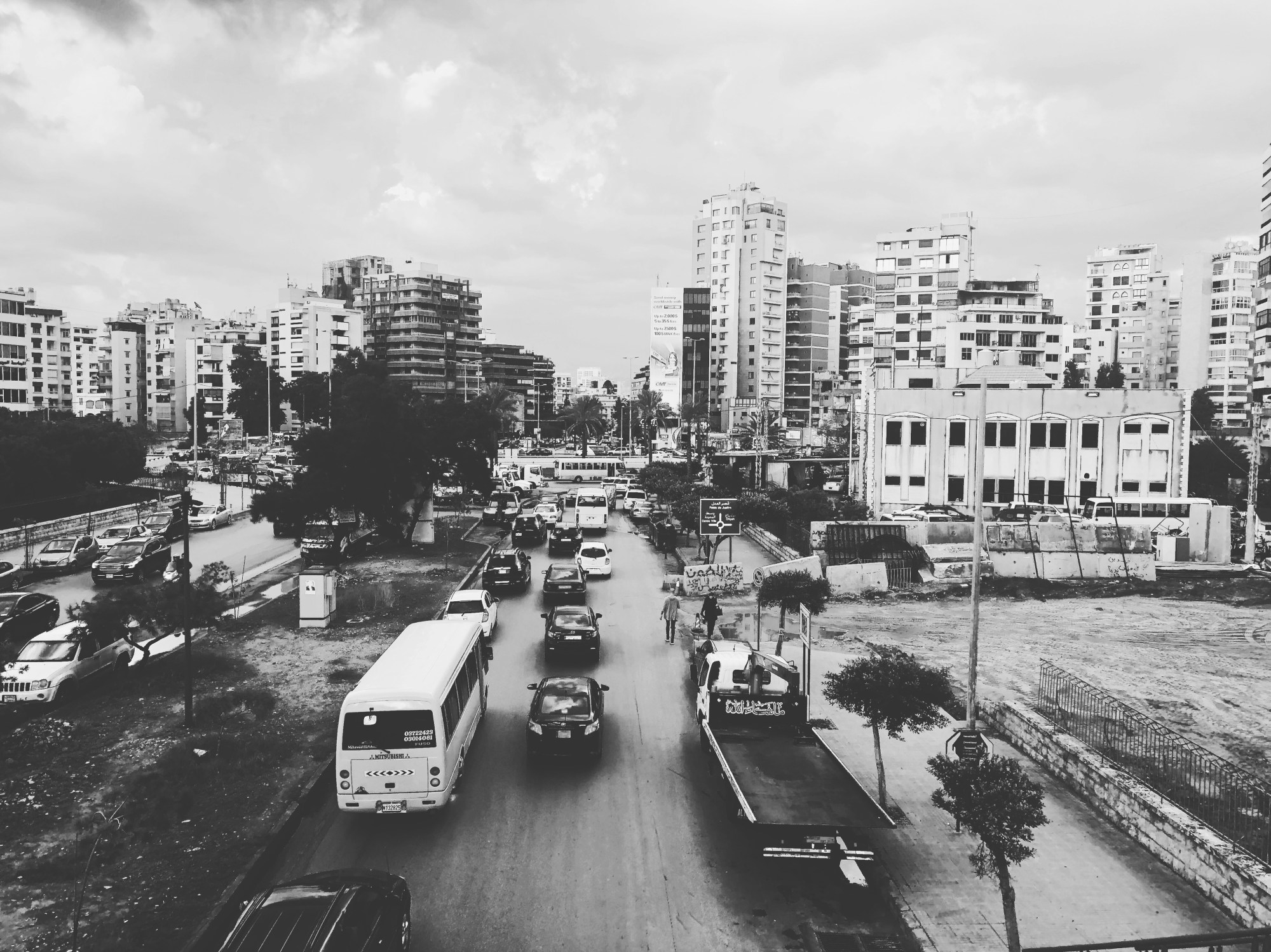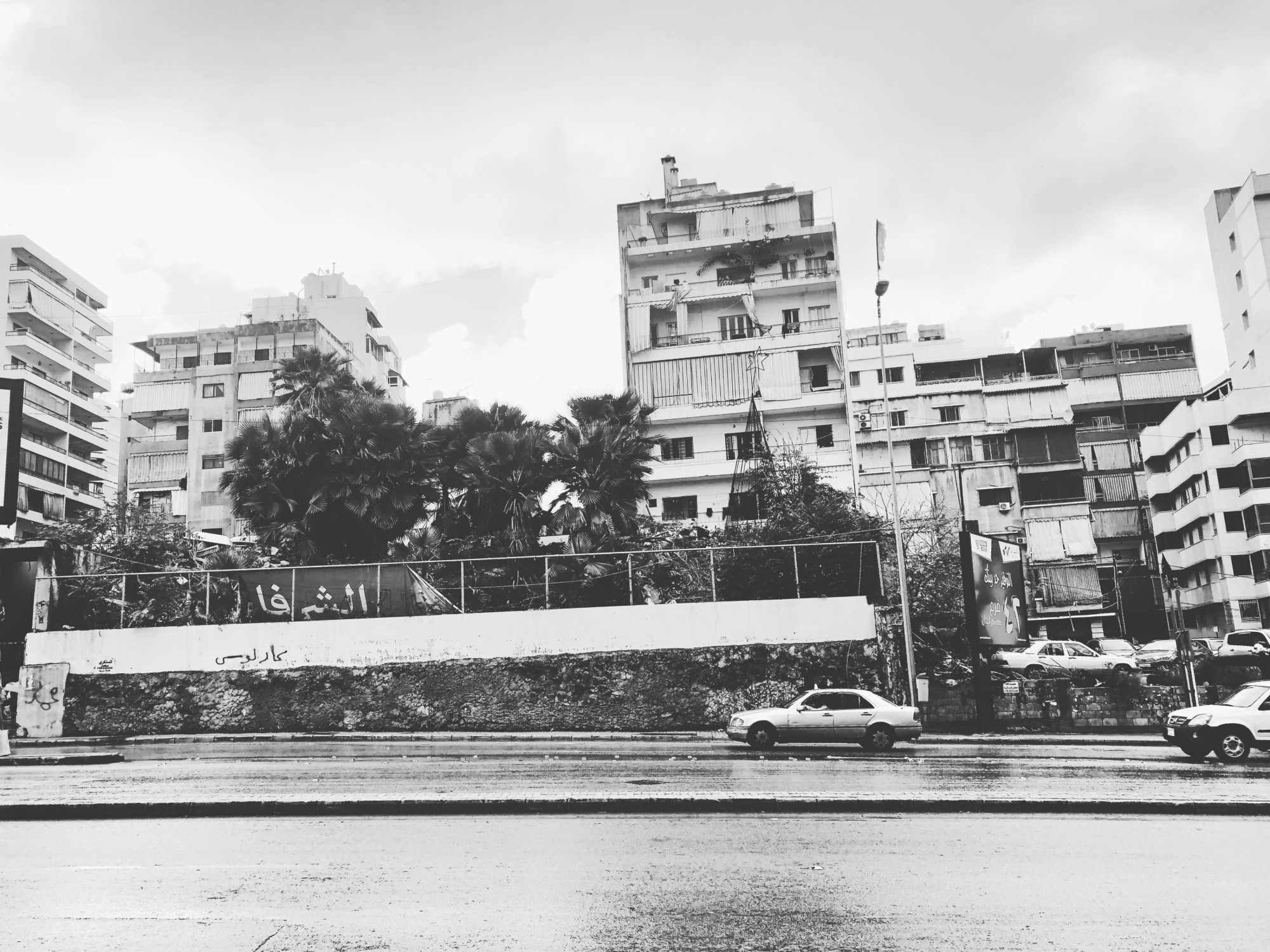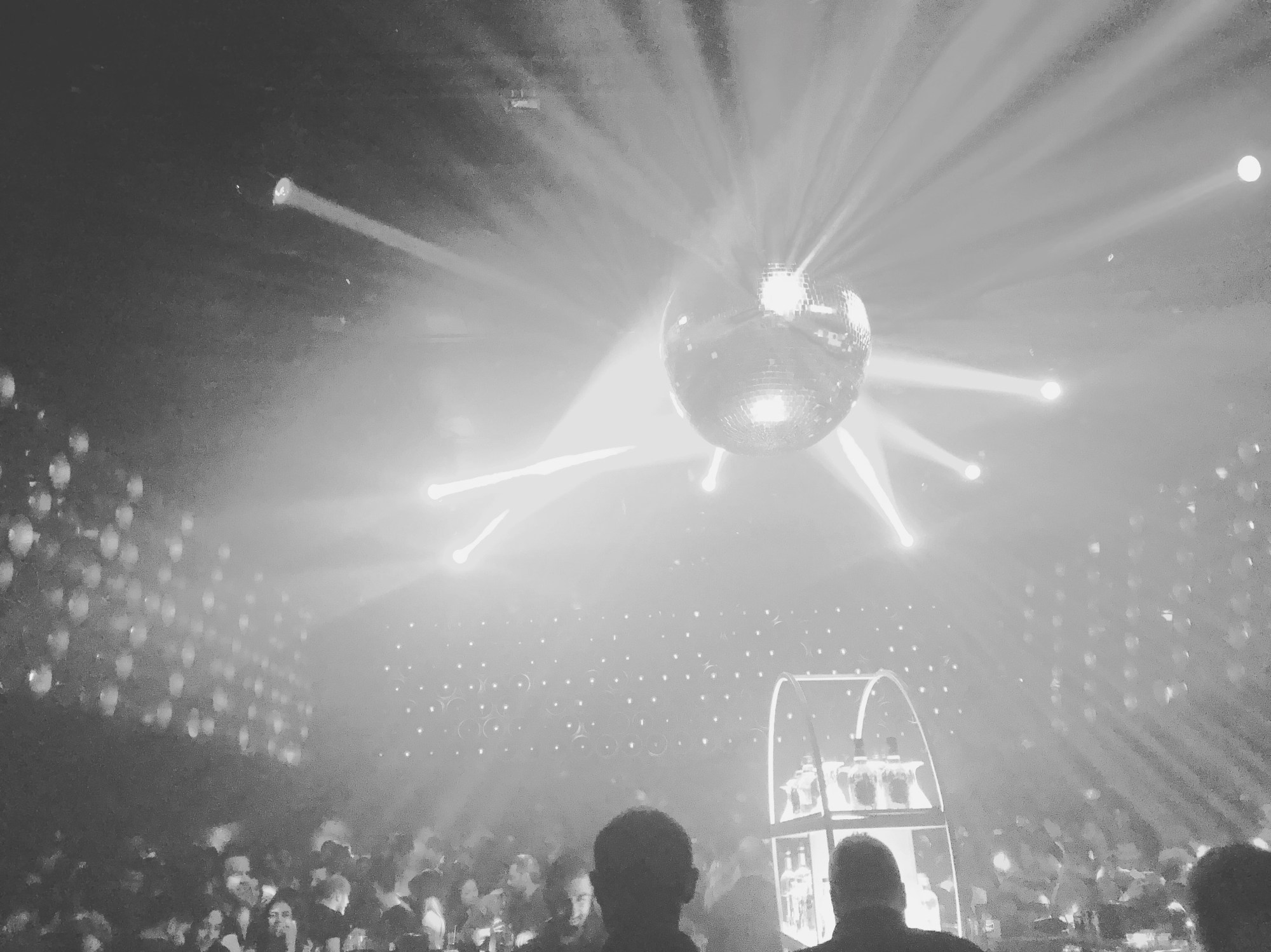Beirut is a city long synonymous with the idea of progressiveness in the Middle East. But 30 years on from a devastating civil war that lasted fifteen years, maintaining that reputation is still a constant battle, and the city’s nightlife scene is on the frontline.
Beirut’s nightlife grew from B 018 – the city’s world-famous techno haunt. “It was my dream. I was a musician but during the war I had to quit music. I had all my records and nothing else to do except listen,” says Naji Gebran, the owner of B 018 and a man considered by many to be the Godfather of Lebanese nightlife. During the war, Naji and friends flocked to his apartment to escape their tribulations. “I used to call it musical therapy,” he remembers. “Every time bombs went off we turned the volume of the music up.”
Today this passion project has evolved into a 500 capacity club booking stellar line-ups for a faithful crowd week after week. But ultimately, as detailed on its Facebook page, “B 018 was an idea… an idea that music could be the cure that war-torn Lebanon needed. It united the Lebanese underground when they were clashing on the surface.” And while the institution undoubtedly lit the touchpaper for the city’s creative renaissance, some club owners still face obstacles in their mission to promote tolerance and love on the dancefloor.
In May 2018, German DJ and producer Acid Pauli played at one of Beirut’s biggest seasonal clubs, The Garten. His opening track, which included a sample of a Sheikh reading from the Quran, led to city authorities shutting the club down for five weeks during peak season. The incident is just one of many anecdotes involving government interference in city nightlife. “Politicians use religion to divide us,” says Ali Saleh, co-founder of both The Garten and uberhaus. “They talk about democracy, but this is a democracy based on sectarianism.” Public offices in Lebanon are allocated by religion, and sectarian politics have stalled attempts to reform the economy in recent years. The president is a Christian, the prime minister is Sunni Muslim and the speaker of parliament Shi’a.

Despite the political and economic stalemate in Lebanon, nightclub spaces are thriving. I visited The Grand Factory on its opening winter weekend, and even with a capacity of 2000 people, it was heaving all the way through until close at 7am. Arriving alone, I was welcomed into a space that resembled a hybrid of an industrial warehouse and a botanical garden, and was immediately befriended by a group of Beirutis I met at the bar who insisted I join them. Aside from one English woman looking for pills, I didn’t encounter a single foreigner. “You can’t just turn up and get drugs inside the club,” my new friend Imad politely informed the tourist. “You have to be well-connected and get them beforehand.”
As fun as Beirut is to visit as a tourist, living here is a different story. The unemployment rate in Lebanon is estimated at around 30%. Economic growth dropped to around 1–2% last year, hit by war in neighbouring Syria, and the country’s debt to GDP ratio is among the worst top five countries in the world. Like the rest of the Middle East, regional conflict has pummelled the tourism industry, which used to be a major source of revenue. An enthusiasm for partying among Beirutis has proved crucial for nightlife, with Ali now estimating that tourists only make up 5–10% of his customers.
At The Grand Factory, ravers lapped up dark beats and steady drops from the DJ with the type of fierce fist-pumping that reminds you that raving can be a dangerous sport. My new friends were self-confessed techno lovers, which stands to reason since techno plays a such dominant role in the city’s club scene. DJs here tend to play heavier, more conventionally-structured tracks, compared to the more raw sounds of the underground in London or Berlin. “Everyone is very excited,” said a Canadian-Lebanese friend of Imad’s studying in Beirut. “Despite everything, there are still new clubs opening.”
Disco music also has firm foundations in Lebanon and the Levant, catering to the nostalgia and romanticism of Lebanese culture. At Discotek, another club owned by Ali just a stone’s throw away from The Grand Factory, sweat and teeth-grinding is replaced by two-stepping, tables of Beluga vodka on ice, and a noticeable element of glamour amid a mess of ravers. Two DJs seamlessly passed disco edits and familiar samples back and forth, much to the delight of an enthusiastic and diverse crowd who boogied together beneath a giant silver disco ball.

Clubbing is a crucial outlet for the Lebanese and an opportunity for self-expression across all social classes and backgrounds. In multilingual and multi-faith Lebanon, same-sex relationships are still illegal. Clubs turn a blind eye, but they only have so much sway when it comes to overcoming religious control. “People look at Lebanon and say it’s so much more progressive than other Arab countries, but this is not a reference point which we should be proud of,” Ali notes.
More overtly LGBTQ nightclub venues do exist in Beirut, where club owners have been able to placate city officials enough to keep the spaces safe. The trick is to find the venues through word-of-mouth, since they are not advertised online and public knowledge of LGBTQ events has the potential to illicit violence from religious extremists. Back in 2013 a city mayor shut down Ghost, a well-known but unofficially gay club, and as recently as October this year, a Halloween mixer aimed at LGBTQ students at the American University of Beirut (AUB) was shut down after Lebanon’s former Grand Mufti, a high-ranking Sunni official, targeted event attendees with hate speech. Lebanon’s interior ministry said it could not guarantee the safety of students attending.
For some musicians, the chaos of Lebanon, its dilapidated economy and the fact that it is still, 30 years on, recovering from the destruction of war, is both a source of inspiration and a major challenge for their work. Lebanese musicians face difficulties securing visas to play overseas, and basic production equipment is more expensive to purchase here than elsewhere.
“Sadly it’s not the music keeping me here,” experimental artist Jessika Khazrik says. “Living in Beirut is a challenge, leaving is a challenge.” Jessika’s work might explore Beirut-inspired themes, such as war and waste, but in a city where the megaclubs are dominated by techno, she seeks solace in a community of like-minded artists overseas that help her grow as an artist and find suitable outlets for her work. She says that the underground scene in Beirut is still deeply commercial and that it needs further decentralisation to better pave the way for innovation, noting that a $20 ticket price for entry is still inaccessible for some.

Jessika is not alone in her cynicism. Diran Mardirian was a DJ in the late 90s and early 00s. We met in the dusty upstairs of his world-famous record store, Chico Records. To date, he has listed over 2000 Arabic records on Discogs, 300 of which come from two Syrian labels alone. He experienced the rise of Beirut’s underground scene first-hand, but agrees that there are valid reasons to have reservations regarding how progressive Beirut is today. “The electronic scene here is the most vibrant you’ll find anywhere on the planet. There are certain things that us Lebanese do with a bit of panache,” Diran says. “But there are so many contradictions in Beirut. Just yesterday the sewer backed up in a prime real estate area and the whole street was awash with shit.”
However intentional it may be, Beirutis are proving that in the midst of economic and political fragility, being a music lover goes hand-in-hand with being an advocate for freedom of expression. Opportunities to express and create need to be grabbed where they can, often in the shadows of the nighttime.
